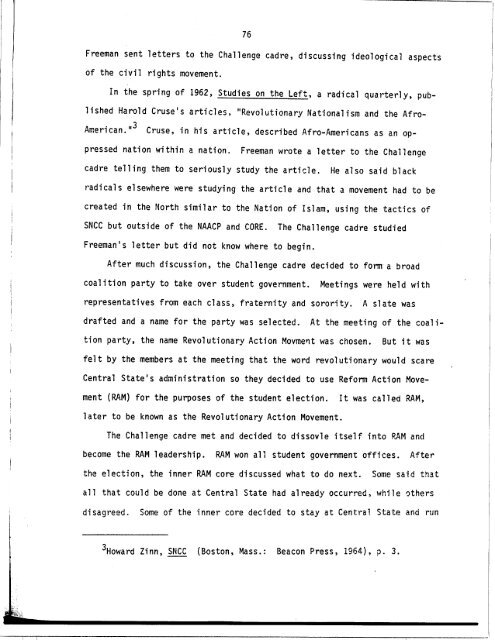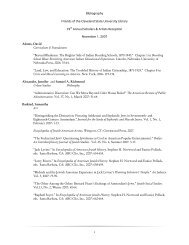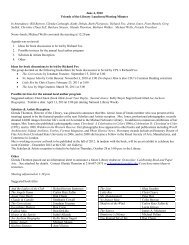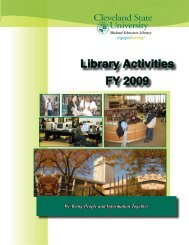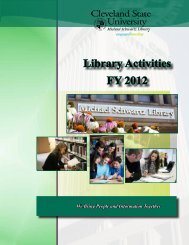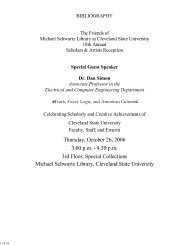revolutionary action movement (ram) - Michael Schwartz Library
revolutionary action movement (ram) - Michael Schwartz Library
revolutionary action movement (ram) - Michael Schwartz Library
Create successful ePaper yourself
Turn your PDF publications into a flip-book with our unique Google optimized e-Paper software.
76<br />
Freeman sent letters to the Challenge cadre, discussing ideological aspects<br />
of the civil rights <strong>movement</strong> .<br />
In the spring of 1962, Studies on the Left , a radical quarterly, published<br />
Harold Cruse's articles, "Revolutionary Nationalism and the Afro-<br />
American ." 3<br />
Cruse, in his article, described Afro-Americans as an op<br />
pressed nation within a nation . Freeman wrote a letter to the Challenge<br />
cadre telling them to seriously study the article . He also said black<br />
radicals elsewhere were studying the article and that a <strong>movement</strong> had<br />
to be<br />
created in the North similar to the Nation of Islam, using the<br />
tactics of<br />
SNCC but outside of the NAACP and CORE .<br />
The Challenge cadre studied<br />
Freeman's letter but did not know where to begin .<br />
After much discussion, the Challenge cadre decided to form a broad<br />
coalition party to take over student government .<br />
Meetings were held with<br />
representatives from each class, fraternity and sorority . A slate was<br />
drafted and a name for the party was selected . At the meeting of the coalition<br />
party, the name Revolutionary Action Movment was chosen . But it was<br />
felt by the members at the meeting that the word <strong>revolutionary</strong> would scare<br />
Central<br />
State's administration so they decided to use Reform Action Movement<br />
(RAM) for the purposes of the student election . It was called RAM,<br />
later to be known as the Revolutionary Action Movement .<br />
The Challenge cadre met and decided to dissovle itself into RAM and<br />
become the RAM leadership . RAM won all student government offices . After<br />
the election, the inner RAM core discussed what to do next .<br />
Some said that<br />
all that could be done at Central State had already occurred, while others<br />
disagreed . Some of the inner core decided to stay at Central State and run<br />
3Howard Zinn, SNCC (Boston, Mass . : Beacon Press, 10,64), p . 3 .


